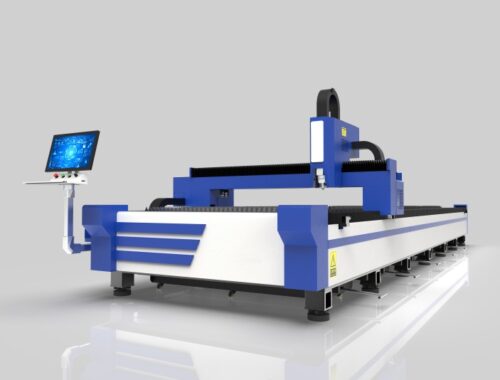The year the party machines broke
2018 marks the demise of the big-city Democratic machine.
For centuries, those storied machines dominated America’s largest cities, driving volunteers through neighborhoods and delivering voters to the polls.
ADVERTISEMENTBut for the last several years, those machines have come under intense pressure, from a rising generation of progressive and minority activists and from rampant scandals of corruption and rot — twin factors that are driving the demise of the last of the country’s powerful political bosses.
The days of Boss Tweed running New York City from Tammany Hall, or James Michael Curley in Boston, or even the Daley family in Chicago are long gone. Still, for the past few decades their successor organizations have dominated big-city politics.
Until now.
In Philadelphia, Rep. Robert Brady (D), who heads the city’s Democratic Party apparatus, announced last year he would retire. Brady, 73, said his departure had nothing to do with a federal investigation into payments his campaign allegedly made to a challenger several years ago. But several of Brady’s close allies have been charged in the case.
Where Brady’s organization held a lock on white ethnic voters, African-American turnout was the domain of former Rep. Chaka FattahChaka FattahPhiladelphia Dem power broker indicted The year the party machines broke Jury convicts the son of Rep. Chaka Fattah MORE (D), who held the city’s other seat in Congress. Fattah resigned in 2016 after being convicted of 23 counts of fraud, racketeering and corruption.
In New York, Rep. Joseph Crowley (D) ran the Queens County Democratic Party’s massive turnout machine, controlling the patronage jobs that came with local elected offices.
Crowley, 56, ran headlong into the excitement and enthusiasm that drove turnout among minority voters, and he lost his primary this year to 28-year-old Alexandria Ocasio-Cortez, a first-time candidate who painted her rival as a staid fixture of the past.
In Chicago, state House Speaker Mike Madigan (D) has held sway over city and state politics for decades. But even his power is coming under fire, after allegations that several members of his political organization had sexually harassed volunteers and campaign workers over the years.
And on Tuesday, another political machine showed its vulnerability. In Boston, City Council member Ayanna Pressley ousted 10-term Rep. Michael CapuanoMichael (Mike) Everett CapuanoInside the progressive hunt for vulnerable House Democrats Progressive mayor launches primary challenge to top Ways and Means Democrat Ex-GOP Rep. Roskam joins lobbying firm MORE (D) in the Democratic primary. Capuano, 66, had support from Boston Mayor Marty Walsh (D) and most of the city’s prominent labor unions, who hold the levers of power.
Politicians and historians who have studied political machines say the old way of doing business is dying for four reasons. The number of patronage jobs, once a key lever machines used to ensure loyalty, has fallen dramatically. The big cities where those machines operate are changing demographically, as ethnic white populations dwindle and minorities rise. The internet has democratized information, which robs machines of their hold on local offices. And, ironically, opposition to President TrumpDonald John TrumpSenate advances public lands bill in late-night vote Warren, Democrats urge Trump to back down from veto threat over changing Confederate-named bases Esper orders ‘After Action Review’ of National Guard’s role in protests MORE has infused an energy and enthusiasm among younger Democratic voters tired of the old ways of doing political business.
“I think the trend of declining machines is one that goes back a long time, but I do think recent shifts make it even harder for machines to survive,” said Eric Schickler, a political scientist at the University of California-Berkeley who has studied party bosses and machines.
Patronage jobs were once the hallmark of a political machine’s power. Boss Tweed in the 19th century stocked New York government jobs with friends and allies, and in return those workers — from garbagemen to clerks — voted for their patrons.
But good-government reforms have dramatically shrunk the number of jobs that any political boss can fill. In the 1970s, Chicago Mayor Richard J. Daley could hand out as many as 35,000 jobs, according to Dick Simpson, a political scientist at the University of Illinois-Chicago.
Today, there are fewer than 5,000 such patronage positions. Similar declines have happened in New York and Philadelphia.
The changing face of American cities has played a role in weakening long-standing machines, and alliances between machines, as well. The country’s largest cities are no longer as racially homogenous as they once were.
A century ago, about 98 percent of New York City residents were white, led by ethnic Irish and Italians whose families came through Ellis Island. Today, the city is 44 percent white, while African-Americans and Hispanics each make up about a quarter of the Big Apple’s residents.
When Crowley first won his seat in 1998, 51 percent of his district’s residents were white; today, it’s 18 percent.
The political bosses, predominantly old, white and male, no longer reflect the changing faces of the cities they inhabit.
“Demography has a lot to do with it. As groups that have been politically marginalized are empowered, [minorities are] taking on traditional powers,” said former Rep. Steve IsraelSteven (Steve) J. IsraelThe Hill’s Campaign Report: Bad polling data is piling up for Trump Biden faces new hurdle: Winning as front-runner The Hill’s Campaign Report: Biden on the cusp of formally grasping the Democratic nomination MORE (D), who represented Long Island in Congress and saw the party machines up close. “They deserve a seat at the table, and either the party chairman will give them a seat at the table, or they’ll grab one.”
Changing demographics have long proved the foundation for challenges to political bosses, especially in Northeastern cities where waves of immigrants arrived in the 19th and 20th centuries.
Thomas Whalen, a social scientist at Boston University, pointed to John F. Kennedy, who owed his first election to the Senate, in 1952, to Irish-Catholic voters who overcame the Brahmin Protestants who backed Henry Cabot Lodge Jr.
“Part of the reason Jack Kennedy won was identity politics. It was the rise of the Irish Catholics,” Whalen said. “Changing demographics brings about political changes in whatever body you’re looking at.”
Where party apparatuses once controlled the flow of information, the internet and social media have increased access — both for voters, and to voters. Anyone disconnected from a political machine can now research candidates on their own, and interest groups and candidates can communicate with voters outside of a machine’s established channels.
“It used to be that in order to know who was running for down-ballot offices in municipal elections, you needed your precinct captain to tell you. There was no way of getting information without getting it from someone who worked for the party,” said Mark Nevins, a Democratic strategist who works in Philadelphia politics.
“Now, people have an almost infinite number of resources to which they can turn for information on who’s running, for what office and what they stand for,” Nevins said. “To the extent that information is power, the increased accessibility to information has weakened the party machine, Democrat or Republican.”
Click Here: cheap INTERNATIONAL jersey
Finally, Trump’s election and administration have had the unlikely effect of energizing the other party’s voters to drain their own swamps. The messages of diversity and economic reform that Democratic challengers like Ocasio-Cortez and Pressley are embracing sound similar to what Trump pledged; the difference is the audience.
Those Democratic candidates are “basically appealing to disaffected working-class voters who were decimated by the 2008 economic downturn. That theme is not solely the property of the right,” Boston University’s Whalen said. “Trump in the White House has more or less pushed along the process, probably a little bit faster than it otherwise would have evolved naturally.”
Schickler, the Berkeley political scientist, said the decline of machines is partly a consequence of a political dialogue that is far more national than local. Voters who cast out Crowley or Capuano may have been more focused on Trump than they were on local issues.
“Machines generally thrive on a state/local orientation, but politics is more and more focused on national personalities and issues,” Schickler said.
The combinations of losing leverage and a rising tide of outsiders are different in each city where political machines strive to hold on to power. But the last vestiges of those machines are under threat, or falling away completely, changing the nature of Democratic Party apparatuses that once controlled America’s largest cities.
“It’s almost like a flushing out of the system,” Israel said. “They’re losing control. Period.”
You May Also Like

DO YOU KNOW HOW TO EXTEND THE LIFESPAN OF YOUR LASER CUTTING MACHINE?
November 22, 2024
Essential Pool Supplies for a Perfect Swimming Experience
March 18, 2025